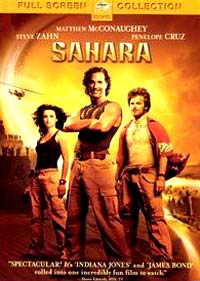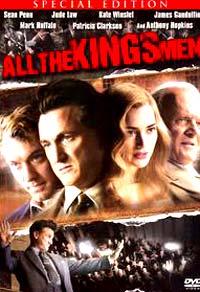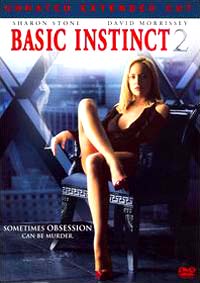For starters, Pond isn't pitching his script as a low-budget indie film. It sounds like a mid-range action movie that needs a studio's backing. So I'm not sure how your points about indie movies apply.
Johnny Depp wasn't a bankable star until Pirates of the Caribbean made him one. Judging by movies such as Public Enemies, it's still not clear if he's bankable.
What's the URL for the Forbes list you mentioned? All I see is Most Marketable Faces: A Forbes List, which is about magazine covers.
I understand that investors, studios, and distributors think they need "names" attached to a project to sell tickets and copies. I'm just saying I haven't seen any evidence that they're right.
Here's a list of the Greatest Box-Office Bombs, Disasters and Flops. What's notable is that many of them involve a big-name actor, director, or "property." The investors, studios, and distributors who banked on the "big names" screwed up royally. They basically threw their money away. Roscoe Pond's movie would've been a better bet than these losers.
Here's a list of Hollywood’s Most Overpaid Stars. And another list of 18 Film Stars Impervious to Box-Office Flops. Why do investors, studios, and distributors keep turning to these stars? The movies they make often flounder. Explain the logic of hiring these "big names" when they're likely to lose money.
There must be tons of action and horror movies that had moderate budgets and no big-name stars but made money hand-over-fist. In fact, this kind of movie may be your best bet if you're an investor looking to earn a profit. Roscoe Pond's project falls squarely into this category.
In short, when someone shows me a study that proves the correlation between a star's popularity and a movie's sales (box office, DVDs, etc.), then I'll believe it. Until then, we're talking about what people think, not what actually is.
For more on the subject, see Jet's Film Financing Story and Fallacy of the Big-Name Actor.
Below: Some movies that flopped despite having "big names" attached.




4 comments:
I think I somewhat sympathise with the views expressed by both Jet and Rob here. You don't need a big star for your movie to be a hit. Last year alone, the likes of "District 9" and "Paranormal Activity" (and to a lesser extend "The Hangover") proved that. But the presence of a star, or indeed having a starry ensemble cast, can help make movies bigger hits than they otherwise would have been.
The "Ocean's 11" franchise was pretty much solely dependant on the appeal of George, Brad, Matt and co partying around glamorous locations. The Rat Pack film on which it was based worked on the same principle. The movie would have flat-out not worked if it had been made with unknowns. Will Smith is a box office machine, almost to the point where the movies themselves don't matter so long as his face is plastered all over the poster - the guy even has a whole weekend of the year named after him. If Sandra Bullock is in a romantic comedy, people will generally go see it, while far superior romantic comedies starring Jospeh Gordon-Levitt and Zooey Deschanel get ignored.
The presence of a star is not essential, but as part of a package, it makes the potential film juicier for producers and distributors. No, not every film without a star will fail, and not every film with a star will succeed. But if a producer is faced with two equally strong pitches for a mid-level action thriller, but one has Ryan Reynolds attached while the other has Roscoe Pond, what do you think the producer is going to decide will be the easier sell?
I agree that some actors seem to attract attention and even success. But Clooney, Pitt, and Bullock are among the stars listed with a long series of flops to their names. If you invested in Leatherheads because you thought Clooney was a box-office guarantee, you may be sorry now.
All my talk about Pond's project presumes that it has an exceptional story and script. If it's just another action/revenge potboiler, forget about it. I wouldn't waste my money on that even if it had a good chance of breaking even.
If Pond's pitch is exceptional while the Reynolds pitch is only average, I'd go with Pond. If the two pitches are equivalent but Reynolds's salary is exceptional (as in high), I'd go with Pond. But yes...in the scenario you presented, I'd probably go with Reynolds over Pond.
But let's turn your question around. If you're casting for Green Lantern, do you go with Reynolds, who is still relatively unknown and unproven as a star? Or do you go for the biggest name you can get: Tom Cruise, Johnny Depp, Robert Downey Jr., or whoever?
The smart bet is on Reynolds. Put your money into the story, the director, and the effects, not into big-name actors. Don't rely on the imagined bankability of stars to carry your picture.
Rob,
Keep in mind: I agree with you a "star" doesn't mean sales, but it does make marketing easier, it greases the skids and gets any filmmaker noticed. When's the last time you heard hey lets go see that movie with "*insert star name here...*"
ALL THE TIME.
It is well known that studios will actually change scripts to fit well-known or at least "better" know actors in. (Think "Contact")
Every "star" worth their weight has had a flop, but the movie business is really the "agent" business. Lawyers and Agents make the deals for the most part now, and who has agents? People who have made or are expected to make money in the long run for their agent who in turn gets them connected with a scripts and a director. Then they go to the studios IF they don't already have deal in place.
The old studio system is long gone. Actors are free agents now.
An actor who have a few profitable films under their belts usually have their own companies to produce films...Hanks, Cruise...etc...they make their own films and the Studios get to distribute them. That's another reason why you see the same stars...they have their own production comapnies just working for them to find and produce projects for them.
Here is the ranked celebrity list link:
http://www.forbes.com/lists/2009/53/celebrity-09_The-Celebrity-100_Rank.html
With hundreds of films made each year (that are potentially distributable) most that see theatrical distribution are package deals. A director or producer with a track record, and/or star attached.
Keep in mind most studios don't "make" films anymore. They have contracts with producers that pitch their projects to the studio. The studio might not even put in all the money but get behind distribution (marketing)
Look at Judd Apatow and Seth Rogan...a few hits and they "own" Hollywood.
Like John said, you don't have to have stars (if that isn't your hook...District 9) BUT if you don't have anything besides a horror, FX flick or slasher film....you're fighting an uphill battle to get a distributor's attention for your film without some kind of "angle."
Film making has always been a "who do you know" business.
Ya know?
See you at the movies!
PS Hollywood accounting has a great way of turning Flops into "write-offs."
Keep the faith Rob,
Jet
jetfilm@live.com
PS Rob...
Reynolds? Unknown?
He's known enough to have top agent and that's what matters. (Probably doesn't hurt to be married to Scarlett Johansson either...:-)
Keep in mind on the list of things that can get a writer, director or actor into the Hollywood system... A great agent is at the top.
You must have seen Entourage...?
No agent?
You are waiting to either create something that will stand out in the crowd (which means YOU find the money, take the risks etc..) or hope that an agent accidentally runs you over in their BMW or...
you are pretty much out of luck (in Hollywood)
You have to separate Hollywood from Indie films. Yet Indie films find themselves competing for screens, downloads, cable time, all with much smaller budgets and even worse, marketing dollars.
If you're at home and looking online for something to watch are you going to click on something you've heard of or take a chance on something low budget that usually means low budget production values, acting, script etc...
Most go with what they know...hence...casting with known actors.
Jet
Post a Comment